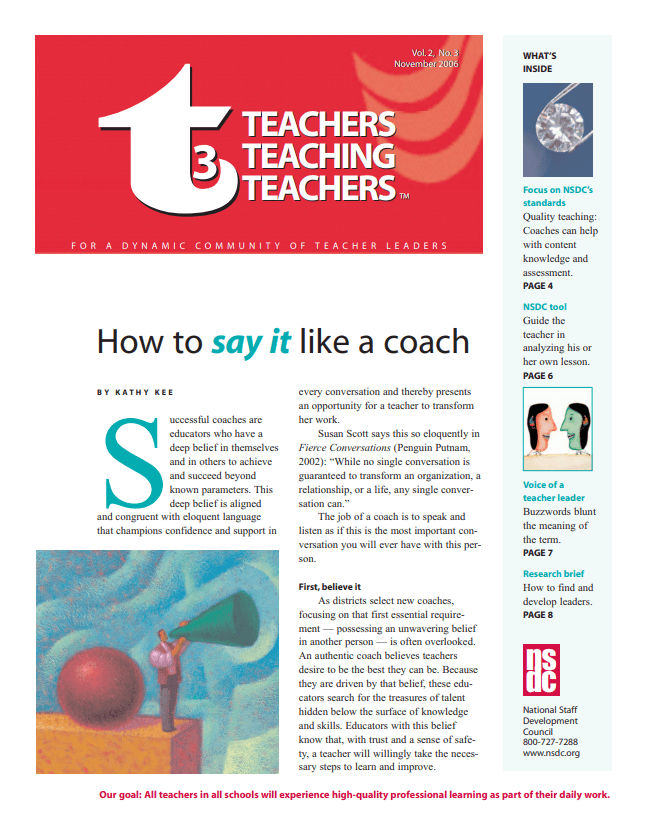
Teachers Teaching Teachers, November 2006, Vol. 2, No. 3

How to say it like a coach
It isn't enough for coaches to deeply believe in the teachers they support -- their words have to show that belief.Read about the importance of conversations between coaches and teachers. Kee shares strategies for language use that demonstrate a coach's confidence -- and motivate teachers to improve.
By Kathy Kee
Focus on NSDC's Standards: Coaches zero in on quality teaching
Coaches, like teachers, rightly focus much of their energy on quality teaching. Improving teachers' classroom practices is a significant factor in raising achievement for all students.The dimensions of quality teaching are instruction, content knowledge, and assessment. Coaches have a wide range of strategies to assist teachers in strengthening all three dimensions. Learn more in Joellen Killion's column.
By Joellen Killion
NSDC tool: Reflective conversation protocol
Coaches help teachers develop awareness of the decisions they make during teaching. Such insights are valuable as teachers and coaches identify the practices that are most successful with students.Use the reflective conversation protocol to guide conversations about teaching episodes between teachers and coaches.
Voice of a teacher leader: Staying out of the buzzword soup
Every new idea or initiative at a school comes with its own phrases and buzzwords -- such as brain-based learning, professional learning communities, shared vision. While the words, and the ideas they represent, are extremely valuable in school improvement, they can also be dangerous.Read what Ferriter has to say this month in his NSDC blog. Please offer your own thoughts about how buzzwords can help or trap teachers as they work together in schools.
By Bill Ferriter
Research brief: Is there a leader in the house?
How can districts and administrators identify potential teacher leaders? A recent research study suggests that potential leaders share certain characteristics related to what motivates them at work.In the study, professor John Rogers examined research related to leadership abilities and aspirations in fields including teaching, engineering, medicine, business, and the military.
Learn more about the study and its implications for school-based coaches.
By Carla Thomas McClure

